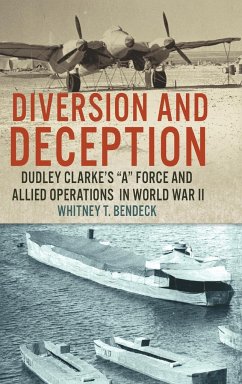In the spring of 1944, Adolf Hitler firmly believed that the Allies would invade the Continent by landing troops on the beaches of Normandy, but anti-Nazi officers in German Intelligence ultimately persuaded him that Normandy would be a mere diversion. The real invasion, Hitler was assured, would be at Calais. Righteous Deception focuses on the activities of two officers whose consciences kept them from siding with Hitler and the Nazis. Their campaign of misinformation and deception convinced Hitler to keep half of the German forces in northern France to defend against an invasion that would never come. This decision ultimately cost Hitler the war. Admiral Wilhelm Canaris, head of German Military Intelligence, turned against Hitler within a year after he had come to power. Canaris and his circle of friends in an opposition movement known as the Schwarze Kapelle (Black Orchestra) did everything possible to prevent Hitler from winning the war, which believed would be a catastrophe. Colonel Alexis von Roenne headed the Fremde Heere West, the branch of Intelligence responsible for evaluating the strength of Allied forces. In a key position to alter findings and other information pertaining to Allied forces in Britain, he doubled the estimated number of troops assembling for D-Day, giving the impression that the Allies had enough men and equipment in Britain for both an invasion in Calais and a diversion in Normandy.
Hinweis: Dieser Artikel kann nur an eine deutsche Lieferadresse ausgeliefert werden.
Hinweis: Dieser Artikel kann nur an eine deutsche Lieferadresse ausgeliefert werden.








